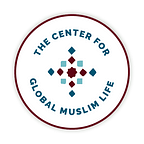Central African Republic: ‘We’re thought of as foreign because we’re Muslims’
by Djamilou Abdoulkarim
Djamilou Abdoulkarim, from Central African Republic (CAR), has been working as a logistician for Médecins sans Frontières (MSF) in Niger. As a result of violence in CAR, his family are scattered in Chad, Cameroon and Niger
I grew up in Bocaranga, in northern Central African Republic. Until recently, there were no problems between Christians and Muslims. Christians invited us to their Christmas and new year celebrations and they came to celebrate with us during Ramadan. There were no barriers and we lived peacefully together. We went to school together and we had fun and played football. There were couples that were mixed too.
Like lots of my relatives, I became a shopkeeper after my final school exams — my family had several shops in Bocaranga. But in 2008, famine struck and MSF opened a therapeutic feeding centre. That’s how I came to be hired as an assistant logistician by MSF.
My work involved supporting field programmes in Bria, Paoua and Carnot. I then went to Burkina Faso to work on malnutrition prevention and refugee programmes. That’s where I was when the rebel group Séléka seized power in Bangui in March 2013.
When I returned to CAR two weeks later, the atmosphere had changed. I couldn’t get to Bocaranga because of the insecurity, so I stayed in Bangui providing support to the MSF coordination team, who every now and again sent me to Bria to carry out exploratory missions and open programmes.
The country was sinking fast and abuse against all communities was rife. The Christian community bore the brunt, but we Muslims suffered too. I was held up on my way out of the MSF office and my motorbike, ID papers, phone and money were stolen. My family in Bocaranga were held at ransom twice. There was growing mistrust and it just wasn’t like before.
On 5 December 2013, anti-balaka Christian militias attacked Bangui. There was shooting everywhere and the streets were deserted. I was frightened and I didn’t leave my home for several days. I lived in a Christian neighbourhood, Benz-Vi, where everyone knew I was a Muslim. I tried to set my mind at rest. I said to myself, “I’m a humanitarian worker, my neighbours will take that into consideration, because it’s obvious I have nothing to do with the crisis that’s been plaguing our country for months.”
There’s not one single Muslim left in Bocaranga. My family is scattered between three different countries. But the anti-balaka militias gradually took over more and more of Bangui’s districts. Muslims were hunted down and murdered solely for their religion and, when the Muslims in Benz-Vi started to be targeted, I realised I had to get away. MSF offered me an assignment in Niger. When the airport in Bangui reopened, I left.
Several weeks later, my little brother, who I’d been living with in Bangui, was attacked in Benz-Vi. He was lynched and left for dead in the street. The French soldiers who found him took him to Bangui community hospital, where MSF was working. They managed to revive him. Some time later, I was able to get him out of CAR and send him to Cameroon.
I thought that our problems were over because, until then, the violence against Muslims was confined to Bangui. But in January, it spread to the rest of the country and finally Bocaranga, where my family lived. When the Séléka withdrew from the town, Christian militias attacked and the Muslims fled for their lives in a state of total panic. Some of my family managed to get to Chad and the rest to Cameroon. Our shops, homes and businesses were looted. We have nothing left.
There’s not one single Muslim left in Bocaranga. My family is scattered between three different countries. My sisters are in a refugee camp in Chad, and my brothers and their families are in a town in the north of Cameroon, where they are staying with distant relatives. I took my two children and four of my brothers to Niger to keep them safe.
I’ve just finished my assignment in Niger and I’m hesitating between several options for the next one. It’s really difficult to work for MSF and support, from afar, about 30 people living in three different places. My first priority was to get them to a safe place, but it’s much trickier now we’re thinking about the longer term.
Muslims have been almost completely expelled from the west of CAR.
Before they were forced to leave, my family were really dynamic and enterprising; now, they find themselves with nothing to do. It’s very, very hard on them.
Returning to CAR is impossible right now. My family are in places where they don’t know anyone, they don’t know how the people there live. One day they’ll get their lives back but, for now, they have no other choice than to wait.
I’m worried that this situation is going to last. They’re saying to themselves, “Here we are, we’ll live here for the time being.” But when they start picturing themselves going home, when peace returns, they realise they’ve got nothing left — that their homes have been ransacked and there’s no money to start their businesses up again.
Should we just forget about going home and make a life for ourselves somewhere else? We’re Central Africans, whether people like it or not. In our heads, we’re Central Africans — that’s where we were born, where we grew up and made our lives. Being thought of as foreign simply because we’re Muslims is absolutely awful.
Originally published at www.theguardian.com on February 16, 2015
For more stories from Ummah Wide click our Logo below
Sign up for our Weekly Email Newsletter Here
Follow Ummah Wide: Twitter | Facebook | Instagram | Linkedin | Soundcloud
If you enjoyed reading this, please click the heart “Recommend” button below.
